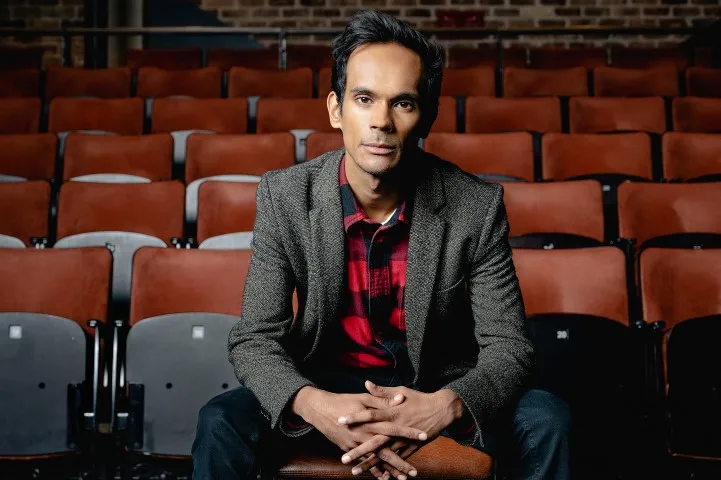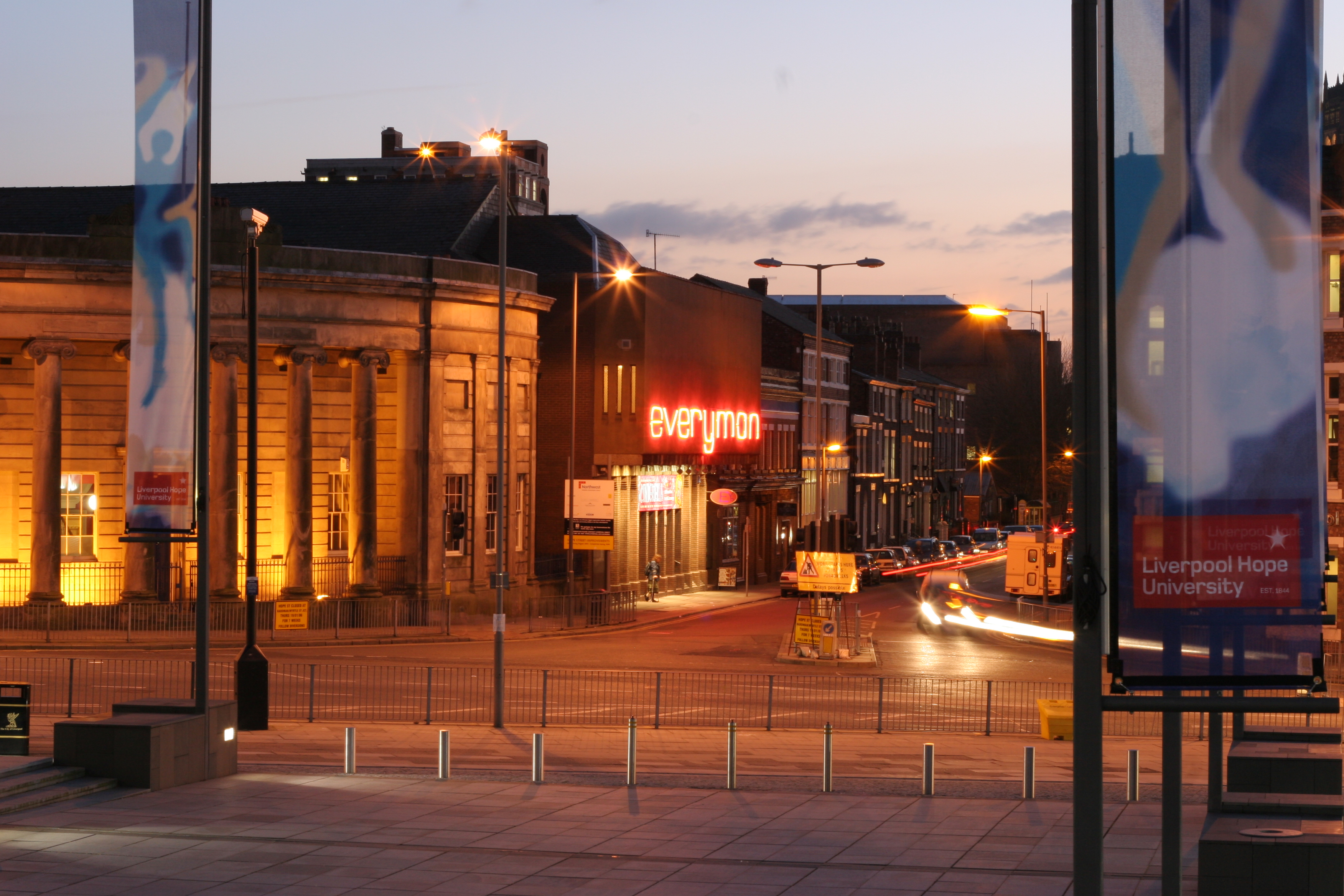The Everyman hired a young director with a big reputation. A year later, he's gone

'I'm devastated to learn of these unfounded accusations, in what feels like an orchestrated and biased attempt to undermine a reputation I have established over 15 years'
Good morning readers — welcome to today’s edition of The Post, which tries to delve into a strange story that the management at Liverpool’s Everyman and Playhouse theatres don’t seem very keen to talk about.
Just under two years ago, the theatres appointed a new leader called Suba Das, a dynamic director in his late 30s whose arrival was said to herald an exciting new chapter for culture in the city. According to The Stage magazine, his hiring as creative director followed “an intensive search by one of the sector’s leading recruitment agencies,” and he took over the theatres in Spring of last year.
“Together with his creative flair and emerging vision for the journey ahead, we can build confidently on the history of our two theatres to create and deliver a bold and inspiring new future,” said Andrea Nixon, the chair of Liverpool and Merseyside Theatres Trust, the organisation that manages the theatres.

Das was welcomed to the city with great fanfare, with the council’s cabinet member for culture Harry Doyle calling him “an incredible new addition to Liverpool’s cultural sector.” As the theatre sector came out of the pandemic bruised and struggling to tempt punters back into their seats, Doyle said the appointment of Das felt “like the perfect opportunity to deliver a new vision which will reconnect and resonate with audiences.”
Das himself certainly wasn’t tamping down expectations, describing his ascension to one of the plum jobs in Liverpool’s cultural scene as an “extraordinary responsibility”. His remarks in the theatre’s press release attested to a soaring ambition for the Everyman and Playhouse as places not only for great culture but venues where he could “use the few things I know to help create a better world.”
“It’s certainly quite the journey for a brown kid brought up on benefits,” he was quoted saying, describing society’s “profoundly serious need for culture,” — a vehicle through which to “find our responses to the ever-starker truths of climate crisis, gender violence, transphobia, structural racism and so much more.”
It was heady stuff. But for some reason, the “inspiring new future,” envisioned by Nixon never came about, nor did the new broom at the Everyman get time to reshape society — or even Liverpool.
After signing a five year contract, Das lasted little more than a year as creative director — with the theatre issuing a much shorter press release announcing his departure early last month. Since then, they have resolutely refused to explain what happened, or answer our questions about Das’ abortive tenure in Liverpool. We’ve been speaking to a number of figures within the city’s theatre scene, some of whom have raised concerns about his time at the Everyman. In a statement, Das told The Post he is “devastated to learn of these unfounded accusations, in what feels like an orchestrated and biased attempt to undermine a reputation I have established over 15 years.”
What went wrong? That’s our story in today’s Post. As always, this edition is (mostly) a members-only affair. Our free readers can read the top of the email, but if you want to read our piece about Suba Das and the Everyman, you will need to join as a member if you’re not part of our paying community already. Why do we do this? Because journalism like this isn’t free to produce. If you want a city full of websites that just publish rewritten (or not even rewritten) press releases from organisations like the Everyman (and the council, and the police, and the property developers), then there’s no need to pay a subscription to anyone.
But if you think Liverpool is better if it has journalists who spend time speaking to sources and putting difficult questions to those organisations, you have to pay for it — albeit only £7 a month, less than a couple of coffees on Lark Lane. A strong subscription base is the only way you get good quality local media because it means we know we’ll have enough money each month to pay our journalists (and our freelancers and our reporting costs and the times we need to consult a lawyer when someone we’re writing about gets expensive lawyers to threaten us with a lawsuit). So if you’re not a member and you want to read today’s story, support The Post and give this city region the media it needs, hit that button below.
Your Post Briefing
Metal detectors are being rolled out across Merseyside to support police during stop and search efforts. Around 140 detectors have been placed in police cars in a bid to prevent knife crime in the region, funded through Operation Target: a force-wide initiative to tackle serious and violent crime. Speaking about the rollout, Merseyside Police Superintendent Phil Mullally said: "There are no circumstances where carrying a knife as a weapon is acceptable. The use of the metal detecting wands are part of our wider work to tackle knife crime and make it more difficult for people to conceal and use weapons in Merseyside." Abi wrote a piece about an uptick in knife crime in recent months — catch up on that here.
Bus lanes that were scrapped by former mayor Joe Anderson in 2014 are set to make a return as part of Liverpool City Council’s active transport strategy. Traffic signals, bus stops and shelters would also be upgraded as part of the plans, with new transport links created to serve parts of the city such as Bramley Moore Dock. Carl Cashman, the leader of the Lib Dems in Liverpool, said the strategy "made perfect sense", adding: “Let's not forget that bus lanes were scrapped by Joe Anderson back in 2014 after he got in a traffic jam and got sad that buses were going past him. This has all led to a public transport system that is not fit for a 21st Century city."
The owner of one of Liverpool’s most famous record shops has died, just two weeks after the death of his former wife and business partner. Geoff Davies co-founded Probe Records alongside his wife Annie back in 1971, with the pair considered giants in the city’s music scene. Together, they created the eponymous record label Probe Plus in 1981, which released tracks from a plethora of Merseyside bands, including Half Man Half Biscuit. Speaking about the death of Geoff, The La’s co-founder Mike Badger said: "He always had a sense of duty, almost a spiritual responsibility to put you on the right track."
Suba Das joined the Everyman with big dreams. What went wrong?
By Abi Whistance and Jack Walton
"I jacked in a Cambridge law degree to do this — I should by rights be a millionaire by now and I was brought up on benefits — this has to matter,” the Everyman’s new creative director Suba Das told an interviewer from The Echo earlier this year. “I don't know how to do this job and it not be about wanting to just shift something because there's so much that's f***ed up in society at the moment.”
Fast forward to today and Suba Das is neither a millionaire nor the creative director of the Everyman. Something went wrong — a much heralded appointment that was supposed to last five years is over in just over a year. Das described taking over the Everyman and Playhouse — a job he began in Spring last year — as “the opportunity of a lifetime,” saying he would direct a couple of shows each year. In the end, he barely had time to get his feet under the desk.
To theatre-watchers like Amanda Parker, a cultural policy consultant and former director of Inc Arts UK, his departure signalled “theatre's failure to invest in diverse leadership”. Writing for The Stage magazine, Parker said the announcement that he was leaving the Everyman “bears the hallmarks of a metaphorical, theatre sector car crash,” — linking it to other short-lived ethnically diverse creative director hires appointed between 2019 and 2021. “A cynic might infer from this depressing list a link between the impact of Black Lives Matter, the pledges to ‘do better’ made during lockdown and the ‘return to normal’ that’s followed.”
Parker noted that Das and the other diverse directors she mentions had not left their roles because they seemed to have another job lined up, suggesting something had gone wrong. But what exactly went wrong?

For the past few weeks, we have been asking the Everyman that question. We had an interview lined up, which got cancelled just hours before. Since then, the theatre’s management has refused to answer our questions or to respond to the various allegations made by sources we have spoken to. Das himself also didn’t want to talk — instead instructing a lawyer to send us letters that they said were strictly confidential. Eventually, he sent us a short statement in which he referred to “an orchestrated and biased attempt to undermine a reputation I have established over 15 years at the country’s major theatres as someone who prioritises inclusion and care.”
Why have we struggled to get substantive answers from either Das or the Everyman? A staff member at the Everyman might have supplied a clue to that in a message they sent us as we were putting the finishes touches to this story. “Suba has signed a non-disclosure agreement,” the person wrote. “He is legally bound not to respond to your approaches. As you can imagine, the current situation is therefore causing him a huge amount of distress.”
The story of his departure “is actually a much more complex situation than your research has revealed,” the staff member wrote (we asked Das’s lawyers if he had signed a non-disclosure agreement and they did not deny it, citing its very existence as confidential).
Liverpool deserves great journalism. You can help make it happen.
You're halfway there, the rest of the story is behind this paywall. Join the Post for full access to local news that matters, just £7/month.
SubscribeAlready have an account? Sign In

Latest
From Jimmy McGovern to Len McCluskey: The household names rallying behind Writing On The Wall’s employees
The lost department stores of Liverpool
Last minute drama, local revamps and Liverpool Doc Club
From Simone's to Belzan: How a hospitality magnate seduced Liverpool's tastemakers
The Everyman hired a young director with a big reputation. A year later, he's gone
'I'm devastated to learn of these unfounded accusations, in what feels like an orchestrated and biased attempt to undermine a reputation I have established over 15 years'